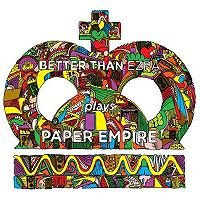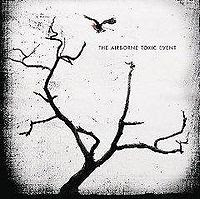
This appeal is directly related to the knack Benson has to write a simple melody and being able to keep the dramatic action of the song intact through his musicianship. Lyrically his songwriting has long revolved around a series of smartly linked couplets which deceive as effortlessly elementary (“If she throws her heart away/I’ll be there on Garbage Day”). This simplicity is then supercharged by magnifying the couplets with layered harmonies that lift them right to your ear. The genius achieved is the preservation of this seemingly pedestrian structure developed in far more interesting compositions that come across far less complicated as the parts he’s meticulously composed.
As My Old, Familiar Friend is not only familiar in style for Benson; it is similar in the thematic first hand address he uses in confronting relationships. Within the psychedelic groove and hand claps of Whole Lot Better” the music is both ironically sweet and straightforward, mirrored by his brutally honest intentions: “I fell in love with you/and out of love with you/all in the same day.” The fresh and bright “Garbage Day” is a call to be saved from loneliness arranged with diving strings over a simple snare progression. In contrast, the dark intonations of “Feel Like Taking You Home” creeps into giving into self destructive impulses of separation, shaped with short circuiting guitar loops over a consistently maddening piano chord. While the progressive “Borrow” is a stomping rocker whose verses surge with strong fervor building to unleash a brash chorus a la early Police (“You don’t see it any other way/You don’t care what other people say").
Even the avid followers who revel in the more psychedelic country blues aspects of The Raconteurs will find something of fascination in indentifying the traces of influence that the band has had on Brendan Benson on My Old, Familiar Friend (This being his first release since forming The Raconteurs). At the same time they can also recognize what makes him unique in what he brings to the band in staying rooted in his old, familiar pop.
Aaron Simms


















